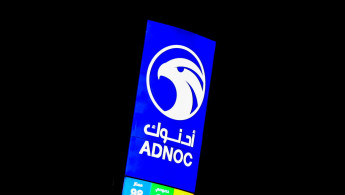UAE's ADNOC and BP suspend $2 billion gas deal with Israel amid Gaza anger
The UAE’s largest oil firm Adnoc and UK energy giants British Petroleum (BP) pulled out of talks on Wednesday to buy a 50 percent stake in Israel’s leading natural gas producer, claiming the $2 billion deal carries too much risk amid Israel’s war on Gaza.
The companies halted talks because of "uncertainty created in the external environment", according to a statement from Israel's NewMed Energy.
With the suspension of talks, the Israeli company appeared pessimistic on reviving the deal soon, stating "there can be no certainty that discussions will resume or that an agreement will be reached in the future".
Shares of NewMed fell as much as 8 percent in Tel Aviv, according to Bloomberg.
Announced in March of last year, the deal was testament to the growing financial connections between the UAE and Israel following the normalisation of diplomatic ties through the Abraham Accords in 2020.
The countries stated that the political agreement would generate billions of dollars in investment, including the ADNOC energy deal.
But negotiations to finalise the deal were derailed on 7 October when Israel launched its unprecedented, devastating assault on Gaza.
With over 31,000 people dead, the vast majority of whom are civilians, and much of the enclave rendered uninhabitable, there has been widespread anger towards Israel within the Arab world, including the UAE.
Abu Dhabi has consistently criticised the Israeli government for its destruction of the Palestinian territory and the spiralling civilian death toll, backing an immediate and lasting ceasefire.
The deal would have seen ADNOC, along with BP, acquire 50 percent of NewMed by buying the company’s publicly traded shares, in addition to a stake held by Delek, an Israeli energy conglomerate.
The suspension of the deal brings to light the impact Israel’s war on Gaza is having on the Israeli economy and business.
Numerous Western brands, most notably coffee chain Starbucks and fast food giants McDonald’s, have faced significant boycotts in the region by customers who see them as supporting or facilitating Israel’s brutal war effort.




 Follow the Middle East's top stories in English at The New Arab on Google News
Follow the Middle East's top stories in English at The New Arab on Google News

![A group of Palestinians, foreign and Israeli activists gather to participated in an olive picking event on the land in the town of Battir, which is under threat of confiscation by Israel in Bethlehem, occupied West Bank on 8 November 2024. [Getty]](/sites/default/files/styles/image_330x185/public/2182930803.jpeg?h=199d8c1f&itok=__0LgGsa)
